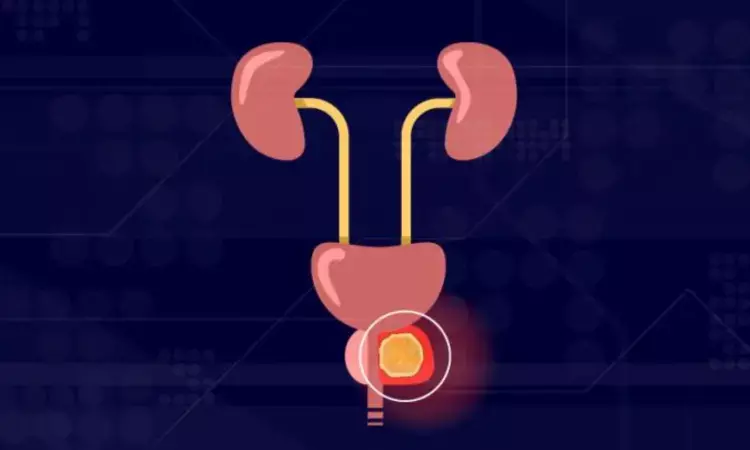- Home
- Medical news & Guidelines
- Anesthesiology
- Cardiology and CTVS
- Critical Care
- Dentistry
- Dermatology
- Diabetes and Endocrinology
- ENT
- Gastroenterology
- Medicine
- Nephrology
- Neurology
- Obstretics-Gynaecology
- Oncology
- Ophthalmology
- Orthopaedics
- Pediatrics-Neonatology
- Psychiatry
- Pulmonology
- Radiology
- Surgery
- Urology
- Laboratory Medicine
- Diet
- Nursing
- Paramedical
- Physiotherapy
- Health news
- Fact Check
- Bone Health Fact Check
- Brain Health Fact Check
- Cancer Related Fact Check
- Child Care Fact Check
- Dental and oral health fact check
- Diabetes and metabolic health fact check
- Diet and Nutrition Fact Check
- Eye and ENT Care Fact Check
- Fitness fact check
- Gut health fact check
- Heart health fact check
- Kidney health fact check
- Medical education fact check
- Men's health fact check
- Respiratory fact check
- Skin and hair care fact check
- Vaccine and Immunization fact check
- Women's health fact check
- AYUSH
- State News
- Andaman and Nicobar Islands
- Andhra Pradesh
- Arunachal Pradesh
- Assam
- Bihar
- Chandigarh
- Chattisgarh
- Dadra and Nagar Haveli
- Daman and Diu
- Delhi
- Goa
- Gujarat
- Haryana
- Himachal Pradesh
- Jammu & Kashmir
- Jharkhand
- Karnataka
- Kerala
- Ladakh
- Lakshadweep
- Madhya Pradesh
- Maharashtra
- Manipur
- Meghalaya
- Mizoram
- Nagaland
- Odisha
- Puducherry
- Punjab
- Rajasthan
- Sikkim
- Tamil Nadu
- Telangana
- Tripura
- Uttar Pradesh
- Uttrakhand
- West Bengal
- Medical Education
- Industry
Neoadjuvant hormone therapy beneficial for patients with high-risk prostate cancer: Study

Intense neoadjuvant hormone therapy in patients with high-risk prostate cancer shows favorable pathologic responses, suggested a study published in The Journal of Urology.
A multicenter randomized phase 2 trial was conducted by McKay R et. al to investigate the influence of intense androgen deprivation on radical prostatectomy pathologic response and radiographic and tissue biomarkers in localized prostate cancer.
The researchers selected eligible patients with a Gleason score of ≥4+3=7, prostate-specific antigen >20 ng/mL or T3 disease and lymph nodes <20 mm.
The researchers recruited a total of 118 patients at 4 sites.
With the median age of 61 years, 94% of patients showed high-risk disease.
In Part 1, patients were randomized in the ratio of 1:1 to apalutamide, abiraterone acetate, prednisone, and leuprolide (AAPL) or abiraterone, prednisone, leuprolide (APL) for 6 cycles (1 cycle=28 days) followed by radical prostatectomy. Surgical specimens also were centrally reviewed. The primary outcome was to determine the rate of pathologic complete response or minimum residual disease (minimum residual disease, tumor ≤5 mm).
While, the secondary endpoints included prostate-specific antigen response, positive margin rate, and safety.
Magnetic resonance imaging and tissue biomarkers of pathologic outcomes were explored.
The results of the study are as follows:
· The combined pathologic complete response or minimum residual disease rate was 22% in the AAPL arm and 20% in the APL arm.
· No new safety signals were observed.
· There was low concordance and correlation between post-therapy magnetic resonance imaging assessed and pathologically assessed tumor volume.
· PTEN-loss, ERG positivity and the presence of intraductal carcinoma was associated with an extensive residual tumor.
Thus, the researchers concluded that Intense neoadjuvant hormone therapy in high-risk prostate cancer resulted in favorable pathologic responses (tumor <5 mm) in 21% of patients, which were similar between both the treatment arms.
Reference:
A study titled, "Results of a Randomized Phase II Trial of Intense Androgen Deprivation Therapy before Radical Prostatectomy in Men with High-Risk Localized Prostate Cancer" by McKay R et. al published in The Journal of Urology.
Dr. Shravani Dali has completed her BDS from Pravara institute of medical sciences, loni. Following which she extensively worked in the healthcare sector for 2+ years. She has been actively involved in writing blogs in field of health and wellness. Currently she is pursuing her Masters of public health-health administration from Tata institute of social sciences. She can be contacted at editorial@medicaldialogues.in.
Dr Kamal Kant Kohli-MBBS, DTCD- a chest specialist with more than 30 years of practice and a flair for writing clinical articles, Dr Kamal Kant Kohli joined Medical Dialogues as a Chief Editor of Medical News. Besides writing articles, as an editor, he proofreads and verifies all the medical content published on Medical Dialogues including those coming from journals, studies,medical conferences,guidelines etc. Email: drkohli@medicaldialogues.in. Contact no. 011-43720751


